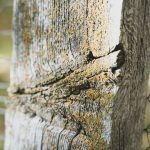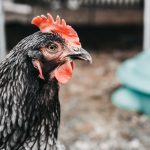Coyotes present a significant risk to chicken flocks due to their intelligence, adaptability, and predatory nature. These opportunistic carnivores are capable of exploiting vulnerabilities in coop security and can access poorly protected enclosures. Coyotes are known to revisit successful hunting locations, making repeated attacks likely if preventive measures are not implemented.
The physical capabilities of coyotes, including their ability to climb, dig, and jump, render standard fencing insufficient as a sole protective measure. Their nocturnal activity patterns further complicate efforts to safeguard chickens, as attacks often occur during nighttime hours when monitoring is challenging. Coyote presence can have broader impacts beyond direct predation.
The stress induced in a flock by the threat of coyotes can negatively affect chicken health and egg production. Additionally, coyotes pose a risk to other small livestock and domestic animals in the vicinity. Understanding the nature and extent of the coyote threat is essential for developing effective strategies to protect chicken flocks and other vulnerable animals.
This knowledge forms the foundation for implementing comprehensive security measures to mitigate the risk of coyote attacks.
Table of Contents
- 1 Securing Your Chicken Coop: Implementing Physical Barriers to Keep Coyotes Out
- 2 Utilizing Motion-Activated Lights and Alarms: Deterrents to Scare Off Coyotes
- 3 Implementing Livestock Guardian Animals: Using Dogs or Donkeys to Protect Your Chickens
- 4 Removing Attractants: Keeping Food and Water Sources Secure to Avoid Attracting Coyotes
- 5 Creating a Secure Outdoor Run: Providing a Safe Space for Your Chickens to Roam Without Coyote Threat
- 6 Working with Local Authorities: Understanding and Utilizing Legal Options to Manage Coyote Populations
- 7 FAQs
- 7.1 What are coyotes?
- 7.2 Why do coyotes pose a threat to chickens?
- 7.3 What are some methods to keep coyotes away from chickens?
- 7.4 Are there any natural deterrents for coyotes?
- 7.5 What should I do if I encounter a coyote near my chickens?
- 7.6 Are there any legal methods for dealing with coyotes?
Key Takeaways
- Coyotes pose a significant threat to chickens, as they are known to prey on them.
- Physical barriers such as sturdy fencing and secure coop doors are essential for keeping coyotes out.
- Motion-activated lights and alarms can be effective deterrents to scare off coyotes and protect chickens.
- Livestock guardian animals like dogs or donkeys can be used to protect chickens from coyote attacks.
- Keeping food and water sources secure is crucial for avoiding attracting coyotes to your property.
Securing Your Chicken Coop: Implementing Physical Barriers to Keep Coyotes Out
Fencing and Underground Protection
Consider using heavy-duty wire mesh with small openings to prevent coyotes from squeezing through or digging under the fence. Burying the fence at least 12 inches underground can also help prevent coyotes from digging their way into the coop. Additionally, adding a wire apron that extends outward at the base of the fence can further deter digging attempts.
Securing Entry Points
In addition to fencing, it’s important to secure all entry points to the coop, including doors, windows, and vents. Use heavy-duty locks and latches to prevent coyotes from gaining access through these vulnerable areas. Consider reinforcing doors and windows with additional hardware, such as metal bars or grates, to further strengthen these entry points.
Regular Maintenance and Inspection
Regularly inspect the coop for any signs of wear or damage, and promptly repair any weak spots that could potentially be exploited by coyotes. Implementing physical barriers is crucial in keeping coyotes out and protecting your chickens from potential harm.
Utilizing Motion-Activated Lights and Alarms: Deterrents to Scare Off Coyotes

Motion-activated lights and alarms can be effective deterrents to scare off coyotes and protect your chicken flock. These devices are designed to detect movement and emit a bright light or loud sound, which can startle and deter predators from approaching the coop. Installing motion-activated lights around the perimeter of the coop can help illuminate any potential threats and make it more difficult for coyotes to approach undetected.
Additionally, the sudden burst of light can disrupt a coyote’s hunting behavior and cause them to retreat. In addition to lights, motion-activated alarms can also be an effective deterrent against coyotes. These devices are designed to emit a loud sound when triggered by movement, which can startle and scare off predators.
The sudden noise can disrupt a coyote’s hunting behavior and make them think twice about approaching the coop. Consider placing motion-activated alarms at strategic points around the coop, such as near entry points or areas where coyotes are likely to approach. Utilizing motion-activated lights and alarms can be an effective way to deter coyotes and protect your chickens from potential harm.
Implementing Livestock Guardian Animals: Using Dogs or Donkeys to Protect Your Chickens
Livestock guardian animals, such as dogs or donkeys, can be valuable assets in protecting your chickens from coyote predation. These animals are bred and trained to protect livestock from predators and can serve as an effective deterrent against coyotes. Livestock guardian dogs are known for their loyalty and protective instincts, making them well-suited for guarding chickens against potential threats.
These dogs are often large and imposing, which can intimidate coyotes and discourage them from approaching the coop. Donkeys are also effective guardians for chickens, as they are naturally territorial and protective animals. Their loud braying and aggressive behavior towards predators can deter coyotes from approaching the coop.
Donkeys are known for their strong bond with their flock and will actively defend them against any potential threats. When considering livestock guardian animals, it’s important to select breeds that are well-suited for your specific environment and flock size. Proper training and socialization are also essential in ensuring that these animals are effective in protecting your chickens from coyote predation.
Removing Attractants: Keeping Food and Water Sources Secure to Avoid Attracting Coyotes
Removing attractants is crucial in minimizing the risk of coyote predation on your chicken flock. Coyotes are opportunistic feeders and will be drawn to any potential food sources near the coop. It’s important to keep all chicken feed and water sources secure and inaccessible to coyotes.
Store feed in secure containers that are resistant to tampering or chewing, and avoid leaving any spilled feed or scraps around the coop that could attract predators. In addition to feed, it’s important to secure any other potential attractants that could draw coyotes near the coop. This includes garbage, compost piles, and fallen fruit from trees.
Keep these areas clean and free of any potential food sources that could attract coyotes. It’s also important to avoid leaving out any pet food or water dishes that could potentially attract predators. By removing attractants from your property, you can minimize the risk of coyote predation on your chicken flock and create a safer environment for your birds.
Creating a Secure Outdoor Run: Providing a Safe Space for Your Chickens to Roam Without Coyote Threat

Choosing the Right Fencing Materials
When designing an outdoor run, it’s essential to use high-quality fencing materials that are resistant to digging, climbing, and chewing by coyotes. Consider using heavy-duty wire mesh with small openings to prevent coyotes from gaining access to the outdoor run.
Additional Security Measures
Burying the fence at least 12 inches underground can help prevent digging attempts by predators. Additionally, adding a wire apron that extends outward at the base of the fence can further deter digging attempts.
Maintenance and Inspection
Regularly inspect the outdoor run for any signs of wear or damage, and promptly repair any weak spots that could potentially be exploited by coyotes. By creating a secure outdoor run, you can provide a safe space for your chickens to roam without the threat of coyote predation.
Working with local authorities is an important aspect of managing coyote populations and protecting your chicken flock. It’s important to understand the legal options available for managing coyote populations in your area and how you can work with local authorities to address any potential issues. Many areas have specific regulations regarding wildlife management, including trapping and relocation programs that may be available for dealing with problematic coyote populations.
It’s important to research and understand the laws and regulations in your area regarding wildlife management and predator control. This may include obtaining permits for trapping or hunting coyotes, as well as understanding any restrictions on relocation or euthanasia of problem animals. Additionally, local authorities may be able to provide valuable resources and information on how to effectively manage coyote populations in your area.
By working with local authorities, you can gain valuable insight into legal options for managing coyote populations and protecting your chicken flock from potential harm. In conclusion, protecting your chicken flock from coyote predation requires a comprehensive approach that includes understanding the threat, implementing physical barriers, utilizing deterrents, implementing livestock guardian animals, removing attractants, creating secure outdoor runs, and working with local authorities. By recognizing the dangers of coyotes to your chickens and taking proactive measures to protect them, you can create a safe and secure environment for your flock to thrive.
With careful planning and implementation of these strategies, you can effectively minimize the risk of coyote predation on your chicken flock and ensure their safety and well-being.
If you’re looking for ways to keep coyotes away from your chickens, you may also be interested in learning about the benefits of using a secure chicken coop. Check out this article on Snaplock Chicken Coop to find out how a well-designed coop can help protect your flock from predators.
FAQs
What are coyotes?
Coyotes are a species of wild canine found throughout North America. They are known for their adaptability and opportunistic feeding habits.
Why do coyotes pose a threat to chickens?
Coyotes are known to prey on small animals, including chickens. They can pose a threat to backyard poultry and can cause significant losses if not properly managed.
What are some methods to keep coyotes away from chickens?
Some methods to keep coyotes away from chickens include using secure fencing, installing motion-activated lights or sound devices, using guard animals such as dogs, and removing attractants such as food scraps.
Are there any natural deterrents for coyotes?
Some natural deterrents for coyotes include using strong-smelling substances such as predator urine or citrus peels, as well as planting thorny bushes or using prickly plants to create a barrier around the chicken coop.
What should I do if I encounter a coyote near my chickens?
If you encounter a coyote near your chickens, it is important to make loud noises, wave your arms, and try to scare the coyote away. Do not approach or attempt to feed the coyote.
Are there any legal methods for dealing with coyotes?
In some areas, it may be legal to trap or hunt coyotes as a means of population control. However, it is important to check local regulations and obtain any necessary permits before taking such action.
Meet Walter, the feathered-friend fanatic of Florida! Nestled in the sunshine state, Walter struts through life with his feathered companions, clucking his way to happiness. With a coop that’s fancier than a five-star hotel, he’s the Don Juan of the chicken world. When he’s not teaching his hens to do the cha-cha, you’ll find him in a heated debate with his prized rooster, Sir Clucks-a-Lot. Walter’s poultry passion is no yolk; he’s the sunny-side-up guy you never knew you needed in your flock of friends!







